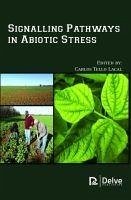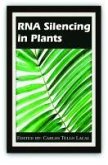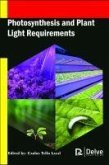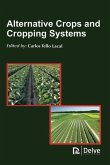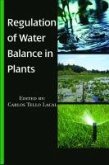Abiotic stress is the negative impact of environmental conditions inhibiting the normal functioning of a living being. Because plants are sessile organisms, their exposure to factors such as salt, drought, toxic cations or extreme temperatures, which strongly limit the productivity of crop species, cannot be avoided by escaping, as it is the case for animals. Instead, plants have evolved a complex network of sensors, signaling molecules and phosphorylation cascades, which leads to the upregulation of transcription factors and responsive genes, and ultimately to the acclimation of plants to these adverse factors. Through the compilation of open access peer-reviewed articles, this book reviews the different components of abiotic stress signal transduction pathways identified and characterized so far.In Chapter number 1, the editor introduces the main components of signaling pathways and presents examples of Calcium-Dependent Protein Kinase (CDPK), Calcineurin B-Like Protein (CBL) and Mitogen-Activated Protein Kinase (MAPK) cascades controlling abiotic stress responses in Arabidopsis, as well as in crop and wild plant species. Chapter 2 reviews the hormones, transcription factors, signaling molecules and phosphorylation cascades employed by plants in their response to drought and salt stress. Similarly, Chapter 3 explores the regulation of MAPK pathways and their role in metal stress tolerance. In turn, Chapter 4 describes the interactions between heat shock factors, heat shock proteins and the redox system in order to allow for plant acclimation to heat stress. The next block of six chapters presents the main messenger molecules triggering signaling cascades. In Chapter 5, the main Ca2+ transporting proteins, as well as functions of this cation in abiotic stress signaling in the roots, are described. The synthesis of carbon monoxide, nitric oxide, phosphatidic acid, reactive oxygen species (ROS) and microRNAs, as well as their involvement in the regulation of abiotic stress signaling pathways, are presented in Chapters 6 to 10, respectively.The present book intends to help college students, teachers, researchers and other readers interested in plant physiology better understand the complex mechanism triggered in response to abiotic stress and how stress signal transduction leads to the expression of adaptive proteins.
Hinweis: Dieser Artikel kann nur an eine deutsche Lieferadresse ausgeliefert werden.
Hinweis: Dieser Artikel kann nur an eine deutsche Lieferadresse ausgeliefert werden.

